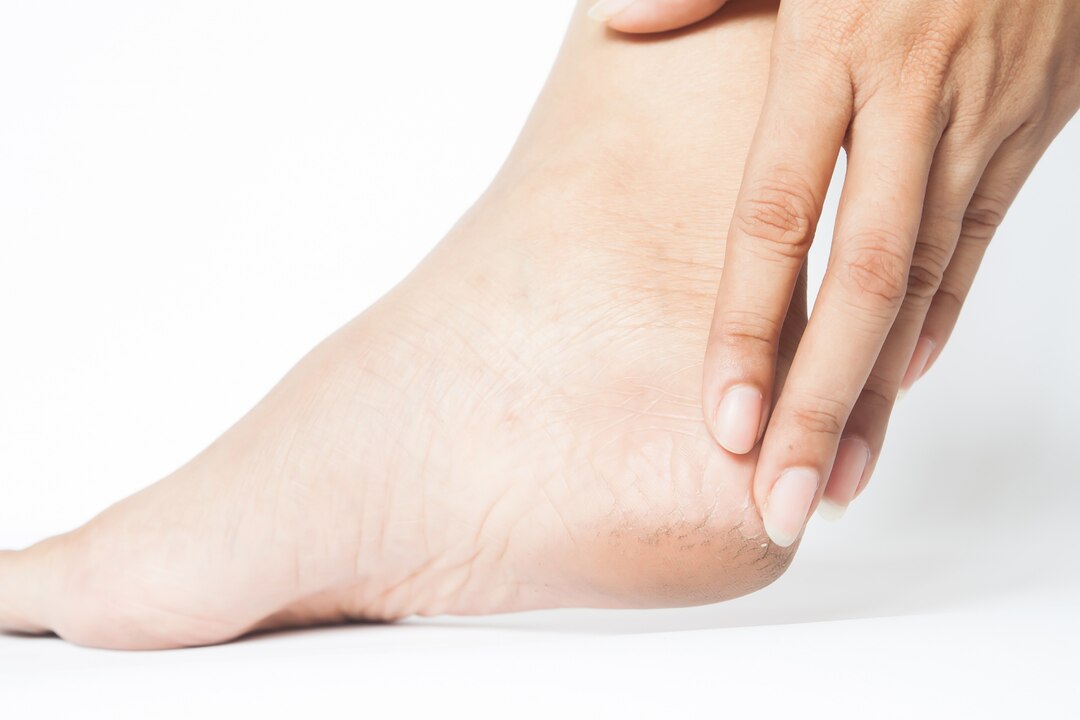Cracked heels, though common, can be uncomfortable and unsightly. These fissures occur when the skin on the heels becomes dry, thick, and calloused, leading to painful cracks. However, with proper care and attention, you can effectively treat and prevent cracked heels, ensuring your feet remain soft, smooth, and healthy. Let’s explore some essential tips and remedies for taking care of cracked heels.
Understanding Cracked Heels:
Cracked heels, also known as heel fissures, are often caused by a combination of factors, including:
- Dry skin: Lack of moisture can cause the skin on the heels to become dry and prone to cracking.
- Standing for long periods: Pressure from standing for extended periods can lead to thickening of the skin on the heels.
- Ill-fitting footwear: Shoes that are too tight or open-backed can contribute to the development of cracked heels.
- Poor foot hygiene: Neglecting to moisturize the feet and exfoliate regularly can exacerbate dryness and cracking.
Tips for Taking Care of Cracked Heels:
Keep Feet Clean and Moisturized:
- Wash your feet daily with warm water and a mild soap, paying extra attention to the heels.
- After washing, gently pat your feet dry with a soft towel and apply a rich moisturizer or foot cream to the entire foot, focusing on the heels.
Exfoliate Regularly:
- Use a foot scrub or pumice stone to exfoliate the dry, dead skin from your heels, especially after bathing when the skin is softened.
- Avoid using harsh exfoliating tools or over-exfoliating, as this can further irritate the skin.
Wear Proper Footwear:
- Choose shoes that provide adequate support and cushioning for your feet, especially if you’ll be standing for long periods.
- Avoid open-backed shoes or sandals that expose the heels to excessive pressure and friction.
Moisturize Before Bed:
- Before going to bed, apply a thick layer of moisturizer or petroleum jelly to your heels and cover them with cotton socks to lock in moisture overnight.
- This deep moisturizing treatment can help soften the skin and promote healing while you sleep.
Stay Hydrated:
- Drink plenty of water throughout the day to keep your body hydrated from the inside out, which can help prevent dry skin and cracking.
Protect Your Heels:
- Use cushioned heel pads or silicone heel cups to protect your heels from excessive pressure and friction, especially if you’re prone to developing cracks.
Seek Professional Help:
- If home remedies don’t improve your cracked heels or if they become severely painful or infected, consult a podiatrist or dermatologist for further evaluation and treatment.
Natural Remedies for Cracked Heels:
- Coconut oil: Apply coconut oil to the heels regularly to moisturize and soften the skin.
- Olive oil: Massage olive oil into the heels to nourish and hydrate the skin.
- Honey and lemon: Create a foot scrub using honey and lemon juice to exfoliate and moisturize the heels.
Taking care of cracked heels requires a combination of proper hygiene, moisturization, exfoliation, and protection. By following these tips and incorporating natural remedies into your foot care routine, you can effectively treat and prevent cracked heels, keeping your feet soft, smooth, and healthy. Remember to be consistent with your foot care regimen and seek professional help if needed to ensure your feet remain in optimal condition. With a little TLC, you can say goodbye to cracked heels and hello to happy, healthy feet.








